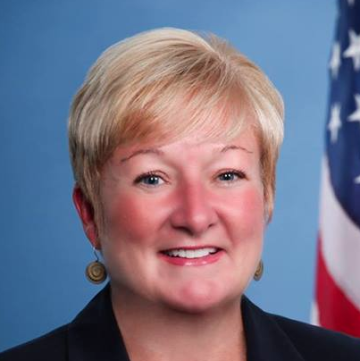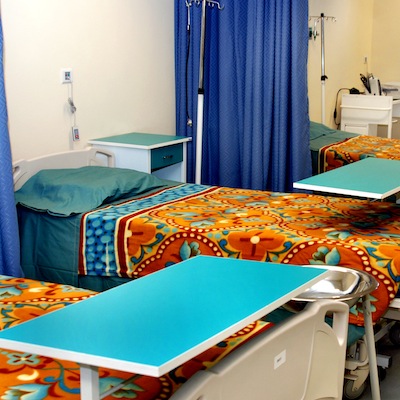Guest MINDSETTER™ Casimiro: It’s Time to End the Home Care Access Crisis
Friday, May 12, 2017
Recently, I had the opportunity to visit with one of my constituents who receives healthcare services in their home in order to remain safely at home. Without home care, this North Kingstown resident would not be able to live in our community with family and would be subject to nursing home placement at a higher expense to taxpayers.
During my visit, I met with the proprietor of the home care company from which this constituent utilizes for care, Mary Benway of Community Care Nurses, also based in North Kingstown. Mary provided me with significant information about the plight of home care companies operating in Rhode Island. From low Medicaid reimbursement rates to more stringent business regulations that do not impact delivery of quality care, Mary spoke about some of the home care companies around Rhode Island that have already closed as a result of an unfriendly business climate for these healthcare providers. In fact, the base reimbursement rate in Rhode Island for these services is approximately 28.5 percent less than neighboring Massachusetts and Connecticut. Not only are these companies struggling to survive to care for their patients and clients, the reimbursement rates directly reflect low wages for their direct care staff.
At this visit, I met one of Mary’s employees, a young woman named Krystal, a nurse assistant that delivers personal care services. Some of the tasks in which Krystal provides are assistance with feeding, bathing, toileting, as well as repositioning for her bed bound client. However, Krystal will soon be leaving this client as she will graduate from nursing school in a few weeks and has already sought higher-paying employment at Kent Hospital. Mary considers Krystal a success story as Krystal chose to move up in the healthcare field, instead of how many nurse assistants leave home care, moving to better paying non-skilled jobs, such as within the retail and fast food industries. Because there are more direct care staff leaving the home care industry than those entering into the workforce, there are not enough people to care for the growing list of those without services that are at-risk for hospitalization or nursing home placement that could otherwise be attended to safely at home. This growing list of need has only become exacerbated by the state’s UHIP implementation failure in which providers like Community Care Nurses have experienced significant delays in reimbursement, delayed access to new case referrals, and delayed Medicaid reauthorizations to continue care for some of their clients.
GET THE LATEST BREAKING NEWS HERE -- SIGN UP FOR GOLOCAL FREE DAILY EBLASTI am fighting to end our state’s access to home care crisis. As a state representative, I am deeply concerned about not having an adequate workforce committed to delivering quality home care. As “baby boomers” age, we will need more nurse assistants, physical therapists, occupational therapists, social workers, and nurses to help navigate our complex healthcare system and deliver healthcare at home, where many of us prefer to live. We cannot lose these vital professionals and paraprofessionals to other industries because their wages do not reflect their value or our need. At the State House, I intend to fight for better reimbursement rates competitive to our neighboring states so that home care companies can remain open and that home care workers in North Kingstown and throughout our state will have the wages that they need in order to remain in home care, receive the same access to quality healthcare that they deliver in our communities, and be able to live comfortably while providing for their families.
Rep. Julie A. Casimiro represents District 31 in North Kingstown and Exeter
Related Slideshow: Winners and Losers in Raimondo’s FY18 Budget Proposal
Related Articles
- Guest MINDSETTER™ Ford: RIPTA and Rhode Island Government Simply Not Working
- Guest MINDSETTER™ Sen. DiPalma: We Can Learn From 19th-Century Education Reform (“Committee of Ten”)
- Guest MINDSETTER™ Arne Duncan, “A Promise Worth Keeping”
- Guest MINDSETTER™ Burke: PC Should Change its Diversity Requirement
- Guest MINDSETTER™ Carlstrom: Abandon the Pawsox Pipe Dream
- Guest MINDSETTER™ Rep. Hull: Time for Providence to Reestablish Residency
- Guest MINDSETTER™ Kenney: Why is Pare Still Working
- Guest MINDSETTER™ Casimiro: Food Pantry Demonstrates Power of Community
- Guest MINDSETTER™ Sen. Ciccone: Elorza is Wrong to Close Plainfield Street Ramp on 6-10 Connector
- Guest MINDSETTER™ Stewart: James Baldwin & Neo-Nazis in Prov on Same Weekend
- Guest MINDSETTER™ Rep. Nunes: Retool RI’s TDI Program
- Hey RI, We Want the PawSox in Worcester: Guest MINDSETTER™ Quist
- Help RI’s Ex-Offenders Shed Scarlett Letter: Guest MINDSETTER ™ Schoos
- Guest MINDSETTER™ Stewart: Sam Zurier is Not a Jew, he’s Just White
- Guest MINDSETTER™ James Monteiro: Vote No in Recall Effort of Councilman Jackson
- Guest MINDSETTER™ Rogachefsky: The Importance of Making Math Fun
- Guest MINDSETTER™ Doyle: Shoeless Joe and Chemical Warfare
- Guest MINDSETTER™ Sen. Sheehan: Bring the Line Item Veto to RI
- The Community Safety Act is Fundamentally Flawed: Guest MINDSETTER™ Jim Wright
- Guest MINDSETTER ™ Art Norwalk: Vote Yes to Remove Jackson From Office
- Guest MINDSETTER™ Casimiro: Children’s Deaths are Horrifying & Accountability is Needed at DCYF
- Guest MINDSETTER™ Kenney: Last Year’s Hero; This Year’s Trash
- Guest MINDSETTER™ Rep. Ruggiero: Making Waves to Reduce College Debt
- Guest MINDSETTER™ Kenney: Elorza & Pare - Make ‘em an Offer They Can’t Refuse
- Guest MINDSETTER™ Sasse: Are Governors Economic Miracle Workers?





















